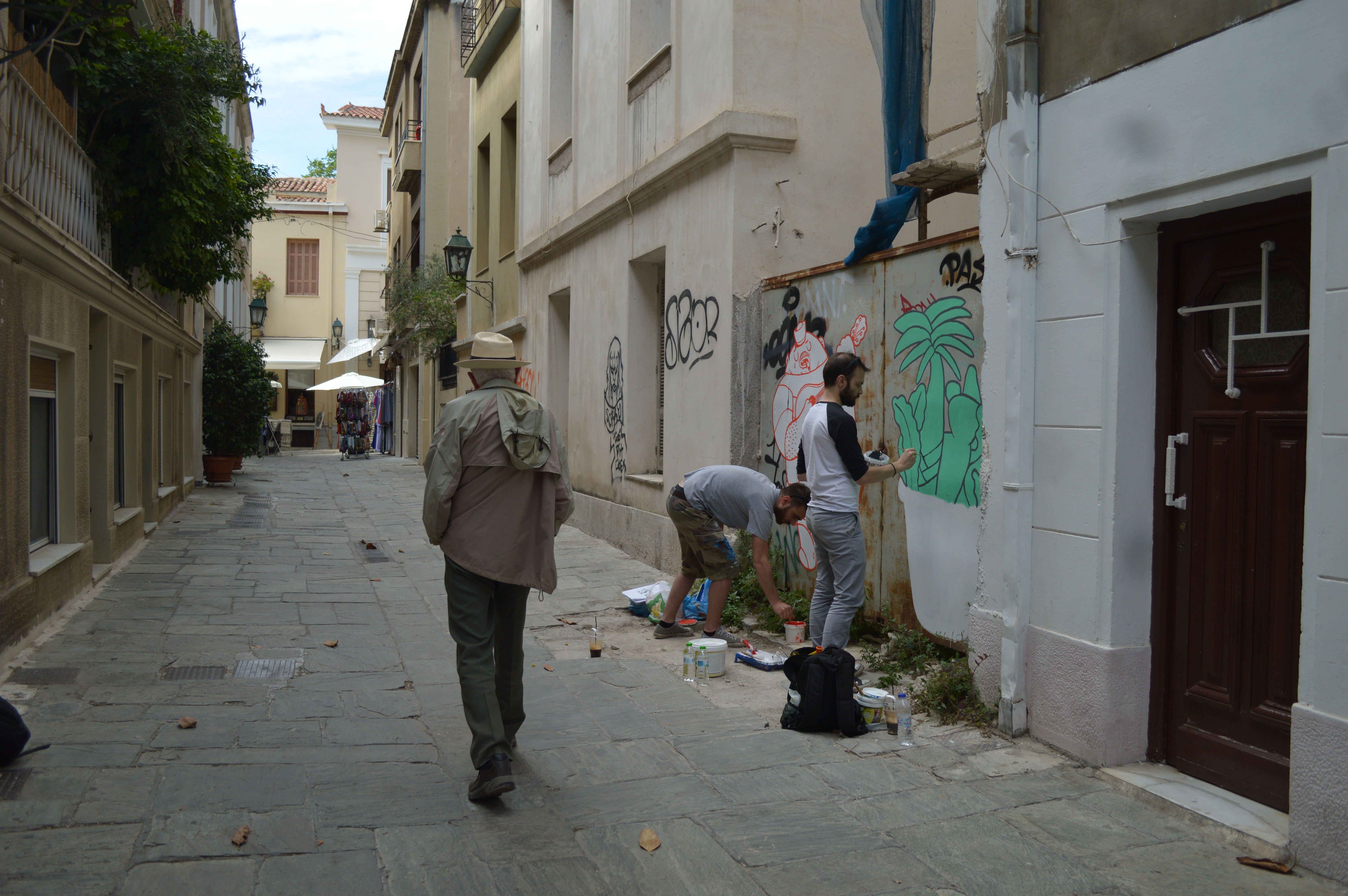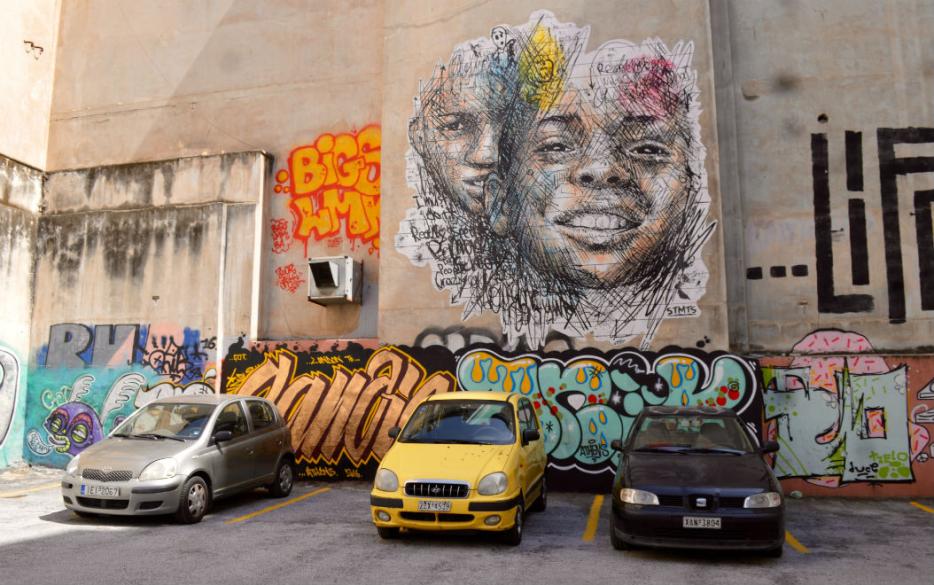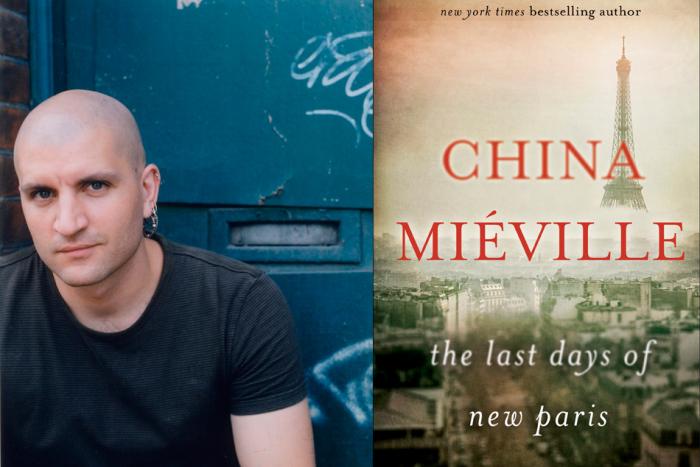A freshly painted fat sailor is drying on a construction gate in Athens. The pudgy man cradles a mandolin-like instrument called a bouzouki in his huge arms as a tear drifts down his cheek. He’s an ode to rembetika, a tragic blues-y music embraced by Greeks forced from Asia Minor in the ’20s. These tunes used to fill Piraeus, the main port area of Athens, before the island-hopping tourists and the recent camps of refugees did. The Greeks would sit and smoke (lots of hashish) and listen to songs about their struggles—many didn’t have homes, or work. The music in the city’s touristy parts is kitschier nowadays, but some things haven’t changed. Dreyk the Pirate, the Greek street artist behind this fat man and the many others like him around the city, rolls another cigarette and slowly sips his coffee. “It sounds cliché, but people from Greece lost their hope because they gave the chance to a person, our leader right now, [Alexis Tsipras] to make a difference but he proved that he’s like the rest.” About a quarter of the country’s 11 million citizens is unemployed. Even after a series of bailouts, including a newly unlocked seven-plus billion euros, Greece is still a floundering financial mess. To keep its IV drip of bail flowing, the country’s Syriza-led government has rolled out unpopular austerity measures, even though it once said it wouldn’t.
That feeling Dreyk speaks of is written all over the city. The crumbling walls of Athens have been pasted, painted, stencilled, sprayed and tagged. It can be tough to find an untouched facade in some neighbourhoods. Politically, the city’s walls lean left. The anarchist circle-a, “migration is not a crime” slogans, and anti-austerity imagery are easy to find. But that’s not to say the art on the streets speaks for everyone: Greece’s far-right Golden Dawn party gained support in the country’s last election, finding particular popularity on the islands most overwhelmed with refugees. Lotek, a stencil-making street artist who has been living on and off in Athens for the past five years, said it’s not that no one with views on the other side of the political spectrum ever paints (a statement that’s a challenge to prove), just that when they do it usually gets destroyed. “We have more spray cans than they have,” they said.
Athens, according to Lotek, is both a “bit of shit hole” and “a great place to live”—there is a freedom that comes with the city’s chaos. “It doesn’t feel like there is a lot of state control, or any control,” they said. For street artists, that means working conditions are prime.

Lotek thinks the city’s walls resonate with many people. “There is a reflection of this kind of hopelessness that exists,” they said. “It’s not the street art that’s political,” they said. “It’s the city that is political, people here are filled with these things.” Antios had spent some time in Sydney and came back to Greece, homesick. He missed the lifestyle, he said, “not the quality of life.” For a street artist, Antios said Athens feels like paradise compared to more-restrictive Australia. His painting buddy Dreyk noticed a change in him when he came back. “He always finished first,” Dreyk said, explaining how jumpy Antios was the first few times they painted outside together again, often looking over his shoulder.
“It was like c’mon—you’re in Athens.”





